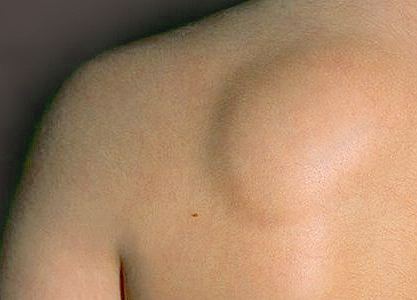Sarcomas

Contact Us
Related Videos :
Frequently Asked Questions :
1. What are the early signs of sarcoma?
The most common early sign is a painless lump, often mistaken for a benign growth. As the tumor grows, it can cause pain or interfere with nearby organs or tissues.
2. How is sarcoma different from other cancers?
Sarcomas originate in connective tissues (bones, muscles, etc.) while most cancers (like carcinoma) start in epithelial cells (skin or lining of organs).
3. Can sarcomas be cured?
Yes, especially when detected early. Surgical removal is often the most effective treatment, and combined therapies like radiation and chemotherapy improve outcomes.

About Sarcomas
Sarcomas are a type of cancer that originates in the body’s connective tissues, such as bones, muscles, fat, nerves, and blood vessels. Although rare, they can develop almost anywhere in the body. Dr. Sandeep Vaishya is experienced in diagnosing and treating sarcomas, especially those affecting the nervous system and brain.
Causes of Sarcomas
The exact cause of sarcomas is not always known. However, several factors can increase the risk, including:
- Genetic predisposition
- Radiation exposure
- Exposure to certain chemicals
- Previous cancer treatments Understanding these risk factors can help in early diagnosis and better outcomes.
Types of Sarcomas
There are more than 50 types of sarcomas, which are generally divided into two main categories:
- Soft Tissue Sarcomas: These affect muscles, fat, blood vessels, and nerves.
- Bone Sarcomas: These develop in the bones.
Some of the most common types of sarcomas include:
- Osteosarcoma (Bone)
- Ewing Sarcoma (Bone and soft tissue)
- Rhabdomyosarcoma (Muscle)
- Liposarcoma (Fat tissue)
Symptoms of Sarcomas
Sarcomas often go unnoticed until they grow large enough to cause noticeable symptoms. Common symptoms may include:
- A lump or swelling that increases in size
- Pain in the affected area
- Fatigue
- Unexplained weight loss
- Difficulty breathing (if the tumor is near the lungs)
Diagnosis of Sarcomas
Diagnosing sarcomas involves various tests and evaluations. Common diagnostic procedures include:
- Imaging tests: MRI, CT scans, and X-rays help visualize the tumor.
- Biopsy: A tissue sample is taken to determine if the growth is cancerous.
- Blood tests: Though not always definitive, they can help rule out other conditions.
Dr. Sandeep Vaishya utilizes cutting-edge diagnostic techniques to accurately identify the type and stage of sarcoma.
Treatment of Sarcomas
The treatment for sarcoma depends on its location, type, and stage. Options include:
- Surgery: The most common treatment, where the tumor and some surrounding tissue are removed.
- Radiation therapy: Often used before or after surgery to shrink the tumor or kill remaining cancer cells.
- Chemotherapy: May be used to target cancer cells throughout the body.
- Targeted therapy: These drugs specifically attack cancer cells without affecting normal cells.
- Immunotherapy: This helps the body’s immune system fight cancer more effectively.
Cost of Sarcoma Treatment and Stay in India
India is one of the most affordable countries for high-quality medical care. The cost of sarcoma treatment in India depends on the type of treatment and length of stay. Here’s a breakdown of average costs:
- Surgery: $5,000 – $12,000 (depending on complexity)
- Radiation therapy: $2,500 – $6,000
- Chemotherapy: $800 – $3,000 (per cycle)
- Hospital Stay: $50 – $200 per day in a reputable hospital